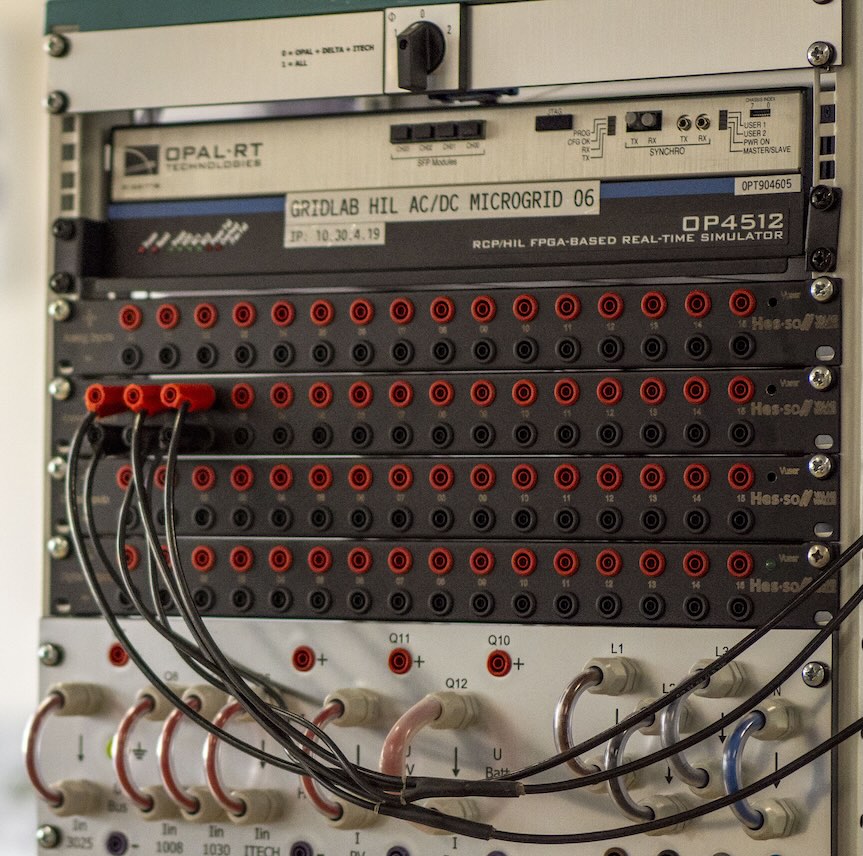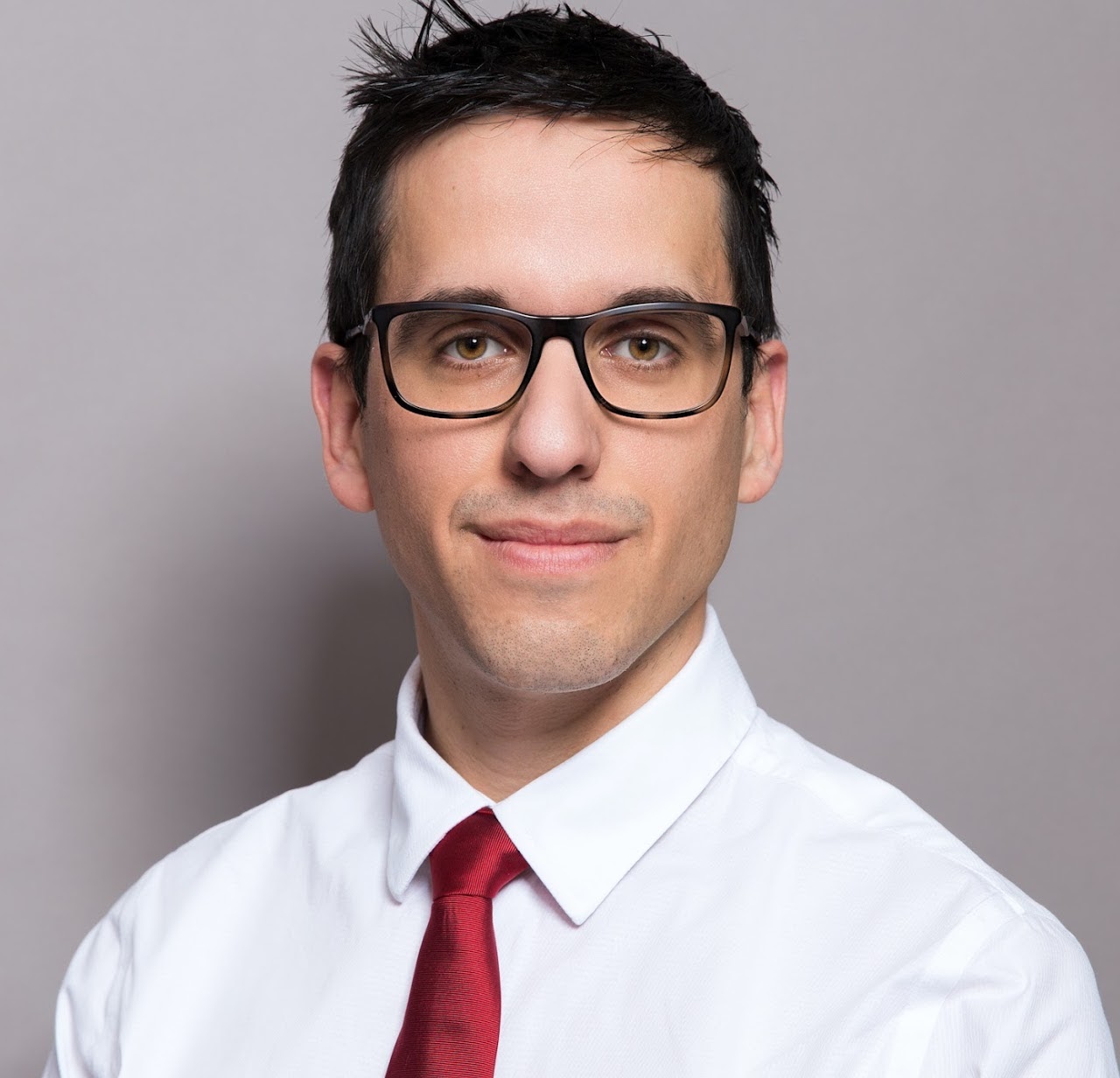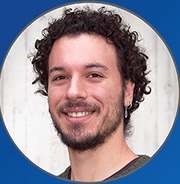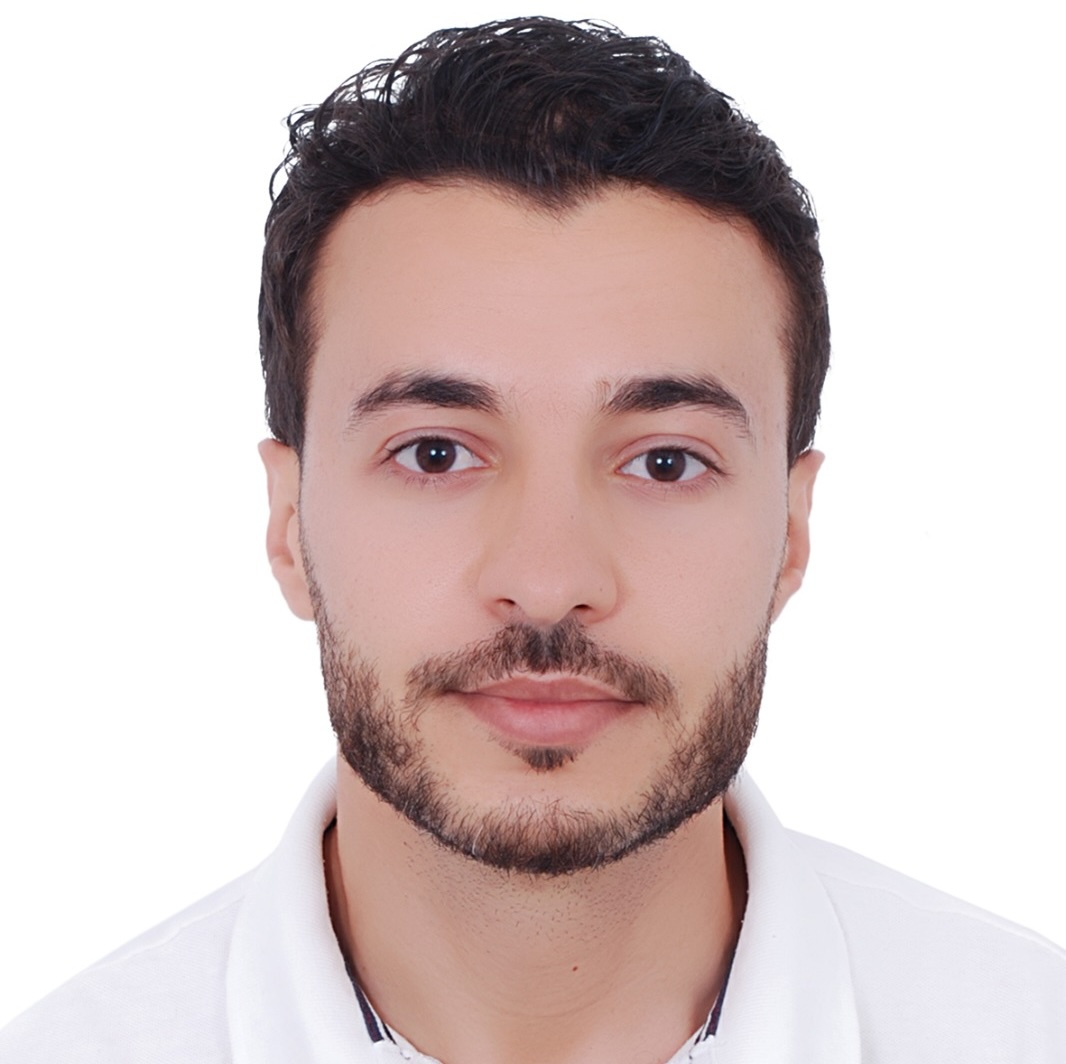

Gridlab is the power systems research group and laboratory of the Institute of Energy and Environment and School of Engineering at HES-SO Valais-Wallis, in Sion, Switzerland. We research and develop modeling and decision-support tools for secure and cost-effective integration of renewables into power grids and electrification of demand. We also prepare the future generation of electrical engineers at the bachelor's, master's and PhD levels with exciting training programs and cutting-edge research projects.
With over 250 kVA of installed experimental infrastructure and 120 km among real and emulated power lines, Gridlab is equipped to perform a wide range of experiments, including power hardware-in-the-loop simulations, energy storage testing, and renewable energy integration studies.
Our reduced-scale platform to test control of rotating machines, frequency and votlage control, islanded grids and inertia-less systems.
Four low-voltage distribution grids in a 1:1 scale to test control of distributed energy resources in presence of increased electrification levels and photovoltaic generation.
Out testbench to teach and research protection schemes and settings for future renewable-based power grids.

Our hardware, combined with real-time simulation infrastructure, enables us to push the limits of our lab and replicate virtually any setup.

Full Professor and Head of Gridlab
Fabrizio Sossan is Associate Professor of Power Systems at the University of Applied Science of Western Switzerland (HES-SO). He holds a PhD in Electrical Engineering from the Technical University of Denmark (DTU) and a Master's in Computer Engineering from the University of Genova. Before joining HES-SO, he held a professorship appointment at MINES Paris and researcher positions at EPFL and ETHZ, and NREL (USA) as a visiting researcher. In 2020, he cofounded ModBESS, a US-based company developing energy management software for energy storage resources. Fabrizio's research focuses on control, scheduling, and design paradigms to enable the integration of energy storage and renewables into power systems, including low-inertia grids and control of power converters. He authored and co-authored around 100 publications in prestigious conferences and high-impact-factor journals. He leads and participates in numerous research national and international projects.

Associate Professor
Julien Pouget received his Ph.D. in Electrical Engineering from the University of Franche-Comté, Belfort, France, in 2009, and his M.S. in Control of Electrical Systems from the Institut National Polytechnique de Toulouse, Toulouse, France, in 2005. He worked on the optimal design of electrical railway traction motors in the Research Department of ALSTOM Transport for three years. Between 2009 and 2017, he was a researcher and project manager in the Innovation and Research Department of SNCF (French National Railway Company), where he worked on hybridization of railway powertrains and hybrid power systems (SSE and RES) for substations and electrical railway networks. These applications leverage various scientific methods, including optimal power flow, energetic macroscopic representation, control strategies, hardware-in-the-loop simulation, and energy management systems. Since 2018, he is Associate Professor at the University of Applied Sciences and Arts Western Switzerland. His research activities focus on the optimal design, modeling, control, and energy management of multi-source energy systems, hybrid vehicles, and smart grids.

Associate Professor
Davide Pavanello holds a MS degree in electronics engineering from the Politecnico di Torino, Italy, 2002, and a PhD degree in electrical engineering from the Swiss Federal Institute of Technology in Lausanne (EPFL), Switzerland, 2007, on lightning electromagnetics. In 2008, he joined the Electrical Engineering Department of ALSTOM Power, Baden, Switzerland, focusing on the electrical protection of the turbogenerator. Since 2011 is associate professor of power systems at the University of Applied Sciences and Arts of Western Switzerland (Hes-so), in Sion. Within the Institute of Energy and Environment, his main activities focus on lightning characterization and advanced strategies of power systems’ protection. Davide is author or coauthor of more than 50 scientific papers published in reviewed journals or presented at international conferences and is a member of the IEC national technical commissions TK81 (lightning protection) and TK88 (wind turbines).

Senior Researcher
Baoling received bachelor’s and master’s degrees in electrical engineering from China University of Petroleum in 2012 and 2014, respectively. She completed an International Master’s in Smart Grids and Buildings at Grenoble Institute of Technology (Grenoble-INP), France, in 2015, and her Ph.D. in Electrical Engineering from the University Grenoble Alpes, France, in 2019. Following her doctoral studies, she undertook a one-year postdoctoral fellowship at G2Elab in Grenoble and a two-year postdoctoral position at GridLab, HES-SO Valais. She is now a senior researcher at HES-SO Valais. Baoling has been involved in numerous research and industrial applied projects and actively contributes to Federal and Horizon Europe proposal submissions. Her main research interests include the modeling and control of power electronic systems, the regulation of electric vehicle chargers and photovoltaic installations in LV/MV distribution networks, and the smart grid solutions for railway systems.

Senior Researcher
Yaser received his B.Sc. and M.Sc. degrees in Electrical Engineering from Khajeh Nasir Toosi University of Technology, Tehran, Iran, in 2004 and 2007, respectively, and his Ph.D. degree from the University of Isfahan, Isfahan, Iran, in 2017. He was a postdoctoral researcher at HES-SO Valais, Switzerland, from 2020 to 2022. He is currently a senior scientist at HES-SO Valais, Switzerland. His research interests include operation, protection and control of power systems and distribution networks, as well as the application of artificial intelligence in power systems.

Senior Researcher
Didier Blatter

Postdoctoral researcher
Stefano Cassano received a Master’s degree in Electrical Engineering from the Polytechnic School of Genoa University in 2018, graduating with a final grade of 109/110. As part of an Erasmus program, he conducted research at Université Catholique de Louvain-la-Neuve, Belgium, studying harmonic disturbances in the frequency range between 2 and 150 kHz on a low-voltage network emitted by electric vehicle battery chargers. He earned his Ph.D. in Electrical Engineering from Mines ParisTech - Université PSL in 2022. His doctoral research focused on optimizing the operation and control of hybrid hydropower stations to support the transition to sustainable power systems, with an emphasis on developing advanced control algorithms. Since April 2023, he has been a postdoctoral researcher at HES-SO Valais Wallis, working on power systems with a focus on control algorithms for hybrid systems incorporating batteries. His research interests include power system operations, control strategies for renewable energy integration, and the optimization of hybrid energy storage solutions. He has been actively involved in research and industrial applied projects, contributing to advancements in sustainable energy systems and smart grid technologies.

Postdoctoral researcher
Plouton Grammatikos received his diploma (integrated master's) from the School of Electrical and Computer Engineering at the National Technical University of Athens (NTUA) in 2018 with a final grade of 9.56/10. His master's thesis explored the use of LTE networks for vehicular communications. In 2024, he earned his PhD in Computer and Communication Sciences at the École Polytechnique Fédérale de Lausanne (EPFL). He carried out his PhD in collaboration with the School of Electrical Engineering, where he worked on optimization strategies for the real-time control of active distribution networks, focusing on fairness. Since June 2024, he has worked as a postdoctoral researcher at the University of Applied Sciences of Western Switzerland (HES-SO) in Valais. His research focuses on optimization strategies for the scheduling and control of distributed energy resources and their integration into electricity markets.

Postdoctoral researcher
Nour-edine Id Omar hold a Master Degree in 2017 in fluid mechanics and energetic from Cadi Ayyad University in Morocco and received his PhD in the area of perfermance assessment and power forecasting of PV modules from the same university in 2022 . He is curently a Swiss Government Excellence Scholarship holder as a postdoctoral researcher working on the broad fieled of renewables integration on the electrical grid.

PhD student
Keyu received his Bachelor’s degree (with highest honors) from Harbin Engineering University, China, in 2020, and his Master’s degree (with highest honors) from Tsinghua University, China, in 2023. From 2023 to 2024, he served as a Research Assistant at the Intelligent Automation Lab, McGill University, Canada. He is currently pursuing a Ph.D. degree at both the Gridlab, HES-SO, and the Distributed Electrical Systems Laboratory, EPFL, Switzerland. His research interests include modeling, optimization, and control of power systems and renewable energy systems.

PhD student
Ali is a Ph.D. candidate jointly affiliated with the University of Applied Sciences and Arts Western Switzerland (HES-SO) and the University of Geneva. He holds a double master’s degree from the Erasmus Mundus Joint Master Degree (EMJMD) program in Decentralized Smart Energy Systems (DENSYS), earning an MSc in Mechanical Engineering from KTH Royal Institute of Technology, Sweden, and another from the University of Lorraine, France, specializing in Decentralized Smart Energy Systems. He completed his master’s studies in 2024. Ali earned his bachelor’s degree in Electrical and Electronics Engineering from Abdullah University in Kayseri, Turkey, graduating in 2020. His research focuses on the modeling and optimization of power systems, with an emphasis on leveraging energy storage to facilitate the integration of Distributed Energy Resources (DERs) while ensuring grid reliability and operational efficiency.

Research assistant
Alexander Le Agopyan
Our research is supported by both public research programs and industrial partners. We collaborate with a wide range of national and international partners across the whole value chain of the power industry, from consumers and producers to grid operators, and other research entities. Our research is supported by the Swiss Innovation Agency Innosuisse, the Swiss Federal Office of Energy, and Horizon Europe. We are member of DERlab.